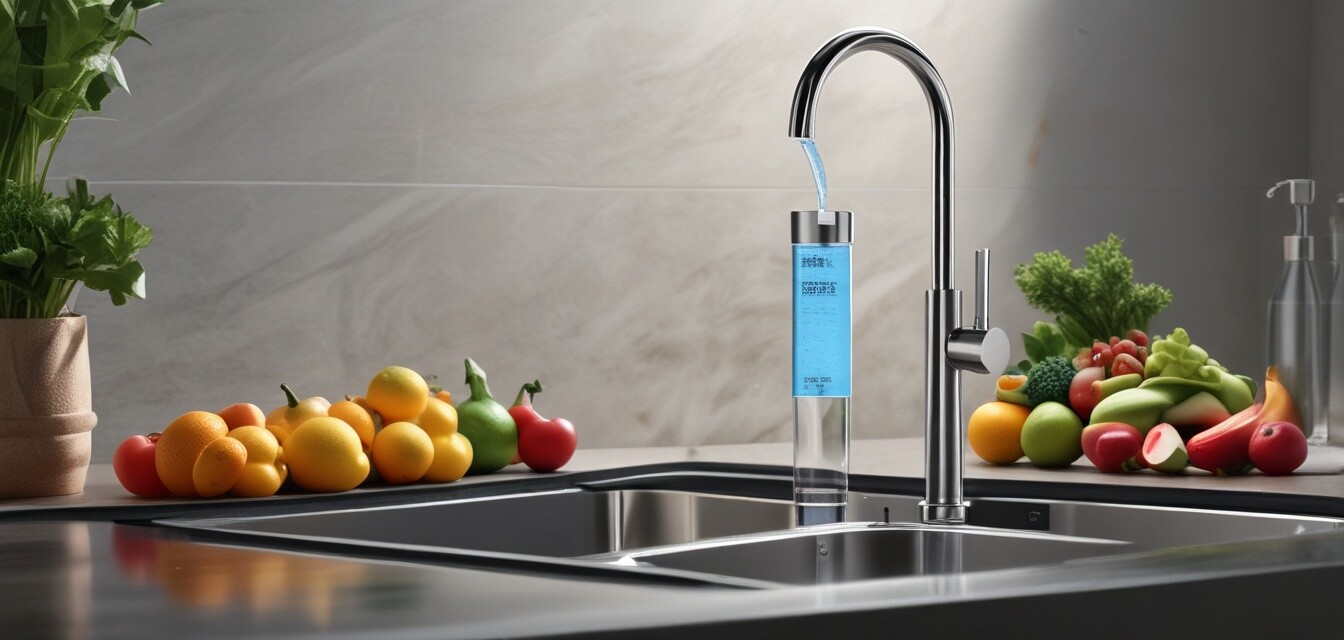
Smart Water Filters: Choosing the Right One
Key Takeaways
- Smart water filters enhance the quality of drinking water.
- Key features include real-time water quality monitoring and integrated filters.
- Consider factors such as capacity, filtration speed, and maintenance.
- Investment in a quality filter can ensure long-term health benefits.
- Choose a model that fits seamlessly into your kitchen layout.
Selecting the right smart water filter can significantly improve the quality of water in your kitchen. With advancements in technology, smart water filters now come equipped with features that not only enhance taste but also ensure health safety. This guide will help you navigate through the key features, benefits, and considerations when choosing a filter that suits your needs.
Why choose a smart water filter?
Smart water filters provide a range of benefits that traditional filters simply cannot. Here are just a few reasons why you should consider upgrading:
- Real-time monitoring: Smart filters can monitor water quality in real-time, alerting you to potential contaminants.
- Convenience: Many smart filters can be controlled via smartphone apps, making adjustments easy.
- Efficiency: These systems often feature advanced filtration methods that remove a wider range of impurities.
Key features to look for in smart water filters
1. Filtration technology
When choosing a smart water filter, one of the most crucial factors is the filtration technology utilized. Below are common types:
| Filtration Type | Description |
|---|---|
| Activated Carbon | Reduces chlorine, sediment, and volatile organic compounds (VOCs). |
| Reverse Osmosis | Removes a wide range of contaminants by forcing water through a semi-permeable membrane. |
| UV Filtration | Uses ultraviolet light to kill bacteria and viruses. |
| Multi-Stage Filtration | Combines several filtration methods for improved effectiveness. |
2. Filter lifespan and replacement alerts
Most smart water filters come with a built-in system that alerts you when it's time to replace the filter. This feature is essential to maintain optimal performance. Here are a few things to consider:
- Filter lifespan can vary from 6 months to 2 years, depending on the type.
- Regular replacement ensures consistent water quality.
3. Capacity and flow rate
Understanding the capacity and flow rate of your filter is crucial, especially if you have a large family or frequent guests. Consider the following:
- Flow rate: This is the speed at which water is filtered. Look for models that offer quick filtration to meet your daily needs.
- Storage capacity: Some smart water filters include reservoirs that store filtered water. Choose one that matches your household consumption.
Energy efficiency
Investing in energy-efficient smart water filters can result in long-term savings. Energy Star rated models use less power and are designed for sustainability. Check the energy rating before making a purchase.
Comparing different smart water filters
| Feature | Model A | Model B | Model C |
|---|---|---|---|
| Filtration Type | Activated Carbon | Reverse Osmosis | Multi-Stage |
| Real-time monitoring | Yes | No | Yes |
| Filter Life | 6 months | 2 years | 1 year |
| Flow Rate | 0.5 GPM | 0.3 GPM | 0.7 GPM |
Maintenance and care
Proper maintenance is critical to ensure your smart water filter operates efficiently. Follow these steps:
- Regularly check and change filters as per manufacturer guidelines.
- Keep the filter clean and free from dust.
- Ensure all connections are tight to avoid leaks.
Pros
- Improves water quality significantly.
- Features advanced technology for better monitoring.
- Convenient and easy to use.
- Promotes health and safety by removing impurities.
Cons
- Can be more expensive than traditional filters.
- May require more regular maintenance.
Conclusion
Choosing the right smart water filter involves understanding its features and how it meets your kitchen needs. From filtration technology to maintenance, being informed will help you make a confident decision. For more tips on enhancing your kitchen with technology, explore our Smart Kitchen Tips or learn about Energy-Efficient Appliances that can complement your new water filter!
Ready to upgrade your kitchen?
Smart water filters not only enhance the taste of your water but also safeguard your health. Assess your needs, explore options, and invest in the best solution for your kitchen.